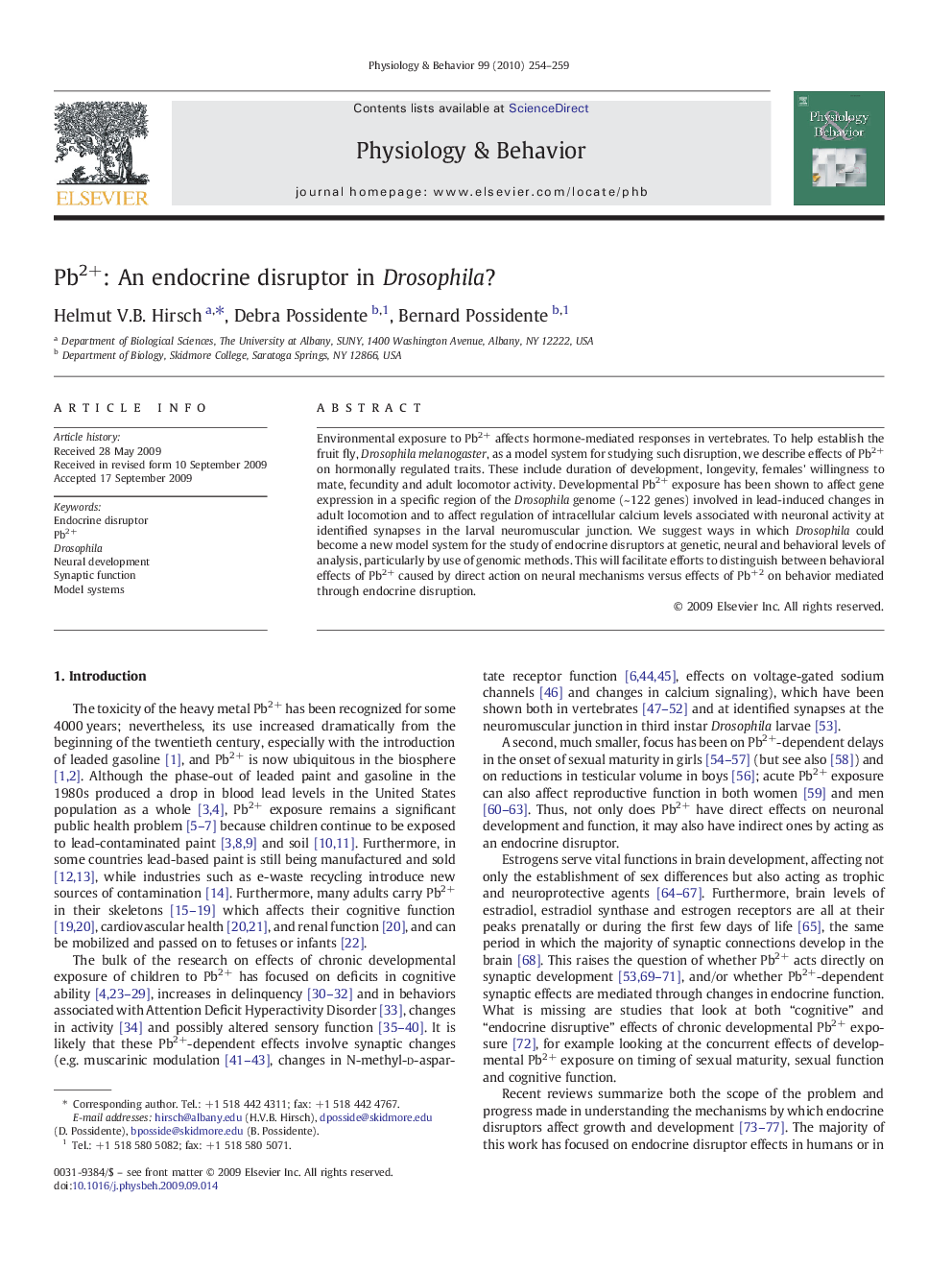| Article ID | Journal | Published Year | Pages | File Type |
|---|---|---|---|---|
| 2845044 | Physiology & Behavior | 2010 | 6 Pages |
Environmental exposure to Pb2+ affects hormone-mediated responses in vertebrates. To help establish the fruit fly, Drosophila melanogaster, as a model system for studying such disruption, we describe effects of Pb2+ on hormonally regulated traits. These include duration of development, longevity, females' willingness to mate, fecundity and adult locomotor activity. Developmental Pb2+ exposure has been shown to affect gene expression in a specific region of the Drosophila genome (~ 122 genes) involved in lead-induced changes in adult locomotion and to affect regulation of intracellular calcium levels associated with neuronal activity at identified synapses in the larval neuromuscular junction. We suggest ways in which Drosophila could become a new model system for the study of endocrine disruptors at genetic, neural and behavioral levels of analysis, particularly by use of genomic methods. This will facilitate efforts to distinguish between behavioral effects of Pb2+ caused by direct action on neural mechanisms versus effects of Pb+ 2 on behavior mediated through endocrine disruption.
